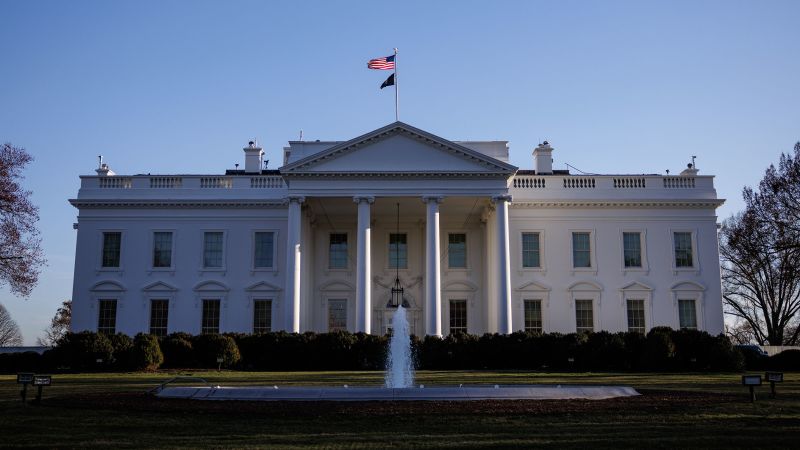In a climate thick with tension, leadership from elite universities and colleges are engaged in discreet negotiations with senior officials from the Trump administration, including deputy to key advisor Stephen Miller, May Mailman. The primary goal is to shield their institutions from aggressive scrutiny and action reminiscent of the ongoing campaign directed at Harvard University. Under the present administration, there’s been a marked escalation in discontent toward Ivy League schools, primarily focused on accusations related to antisemitism and inadequate oversight on campuses concerning the matter.
Higher education leaders from various institutions have approached Mailman to ascertain the exact demands and signals the administration expects from them to avoid becoming targets. Mailman is closely allied with Miller, a prominent figure in crafting governmental strategies aimed at overseeing college campuses. The administration’s official stance, as relayed to these leaders, is clear: financial support from the government cannot be assumed or continued indiscriminately, especially as universities are viewed as breeding grounds for discrimination.
These discussions unfold amid speculated investigations into several other collegiate institutions alongside Harvard. As some university leaders make trips to Washington to meet with administration officials, a particular focus emerges on striking favorable agreements with prominent universities. The hope from the administration is for a leading school to initiate a deal, akin to those made by law firms that tackle not only antisemitism but broader issues like diversity, equity, and inclusion (DEI), as well as the essential necessity for intellectual diversity.
The administration seeks to publicly bolster Trump’s position by being able to claim collaboration with a prestigious institution, projecting the image that the administration has no intention of dismantling higher education entirely. However, there’s palpable hesitation among educational leaders; the sentiment is that no one wants to be the pioneer in entering such agreements, yet pressing financial realities are looming. Many universities have recently faced substantial cuts in federal funding, raising concern regarding the future of visas for international students, who typically contribute notably to tuition revenues.
Conversations between university officials and the administration continue, reflecting a fraught atmosphere loaded with potential for significant repercussions. A representative from the White House emphasized President Trump’s willingness to negotiate with any educational institution that aligns with governmental objectives, particularly those who aim to uphold civil rights and order within their campuses. However, the administration also stresses a desire for genuine commitment from these entities, dismissing superficial pledges without active engagement.
Many universities have turned to political consultants to formulate strategies that align with the administration’s demands, while Harvard, for its part, has opted for a potent legal response and bolstered its alumni advocacy efforts. Notably, frustrations against Harvard predate Trump’s re-election, with allies of the administration citing antisemitism on campuses, especially in the backdrop of the Israel-Hamas conflict—this contributes to a broader agenda that intertwines political maneuvering with critical issues of academic independence, federal support, and oversight.
These pressures coalesce around a dedicated Task Force designed to Combat Anti-Semitism, which conducts regular meetings to coordinate efforts against perceived infractions within educational institutions. At the forefront of this task force is Leo Terrell, a decorated civil rights lawyer who has transitioned into an influential role within the Justice Department. Together with mailman and Miller, they are orchestrating plans regarding which institutions might be scrutinized next.
The administration has openly commended institutions showing compliance with its mandates, notably those weakening DEI initiatives and curtailing campus protests. Meanwhile, Terrell suggested that forthcoming “massive lawsuits” might target universities within the University of California system, indicating a robust commitment to exert additional legal pressure wherever possible.
Responses from the targeted universities underscore their reluctance to become “model schools” for the administration’s agenda. They express optimism in the measures they’ve already enacted and a willingness to contest any infringement upon their academic values. The initiated dialogue regarding funding determinations appears to pivot primarily on complaints, with investigations to follow aimed at ensuring compliance with federal laws designed to prevent discrimination and promote equitable treatment across educational settings.
As the Trump administration continues to maintain a multifaceted approach toward regulating university conduct, the situation evolves encompassing threats and potential settlements, as well as the ever-evolving landscape of domestic education policy. Amid these conflicts, engagements with well-known schools remain critical to the administration’s narrative, as it simultaneously targets institutions like Harvard while investigating others under various legal pretenses. This strategic blend of politics and education underscores the challenges facing higher education as the political climate grows increasingly hostile.



